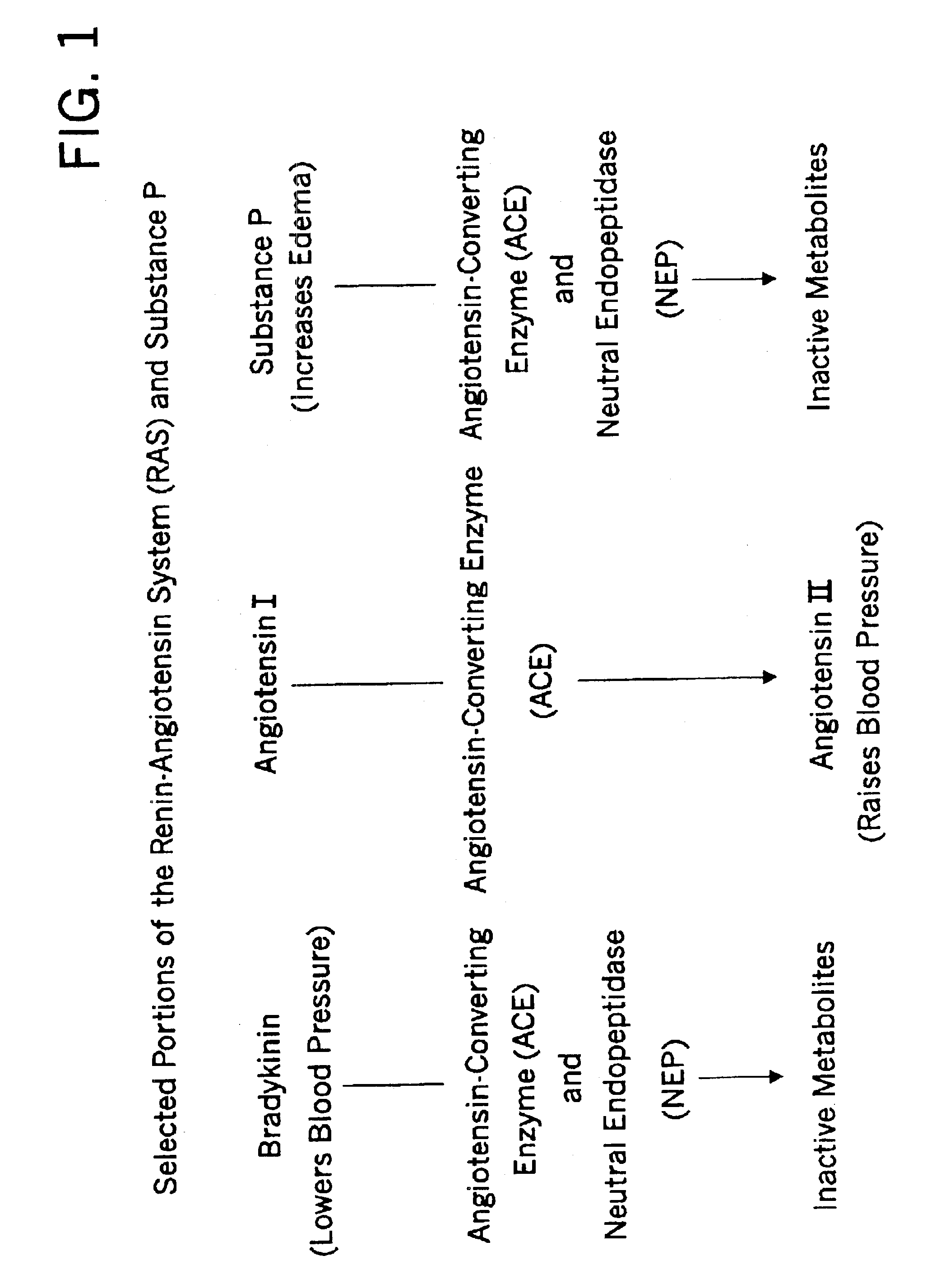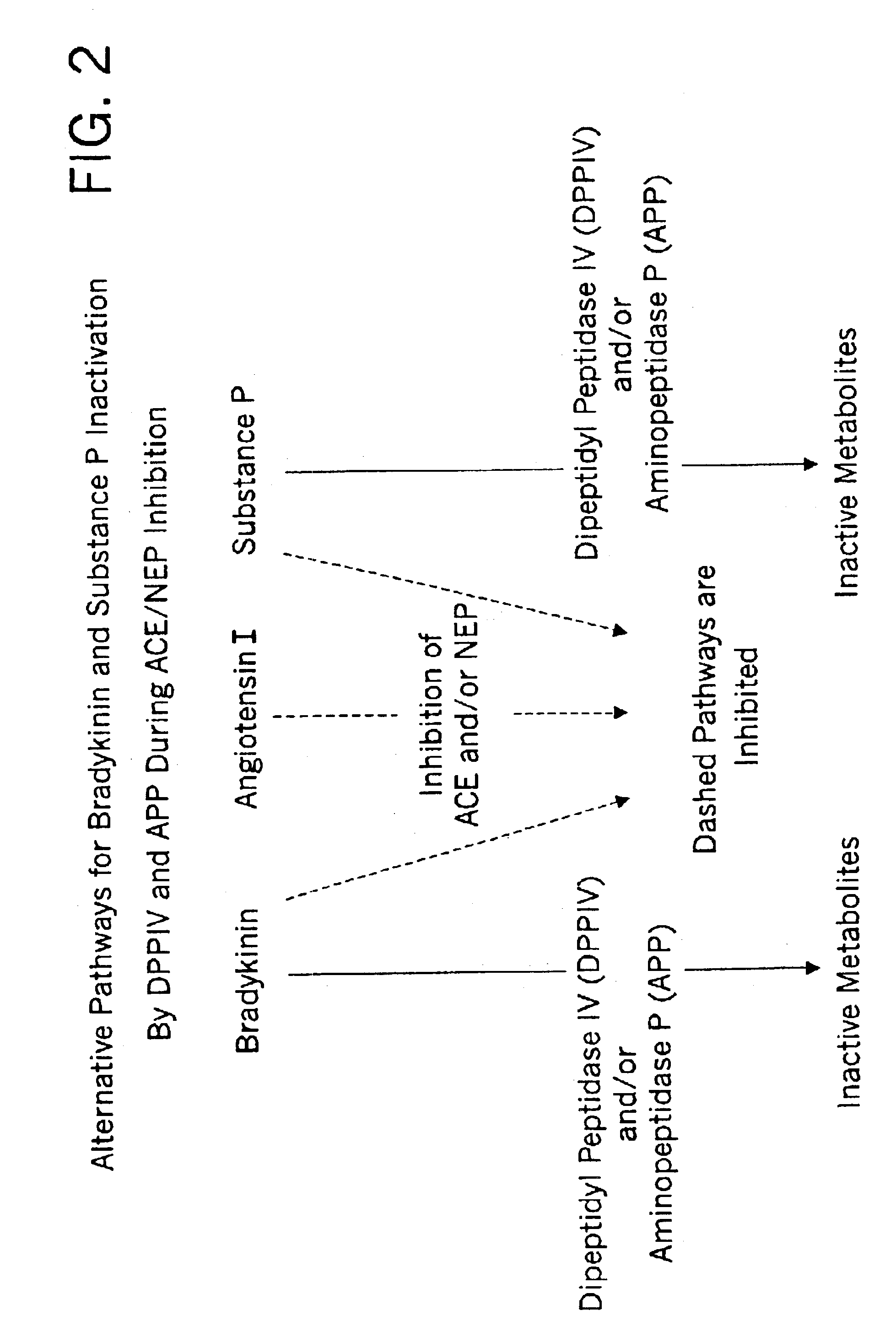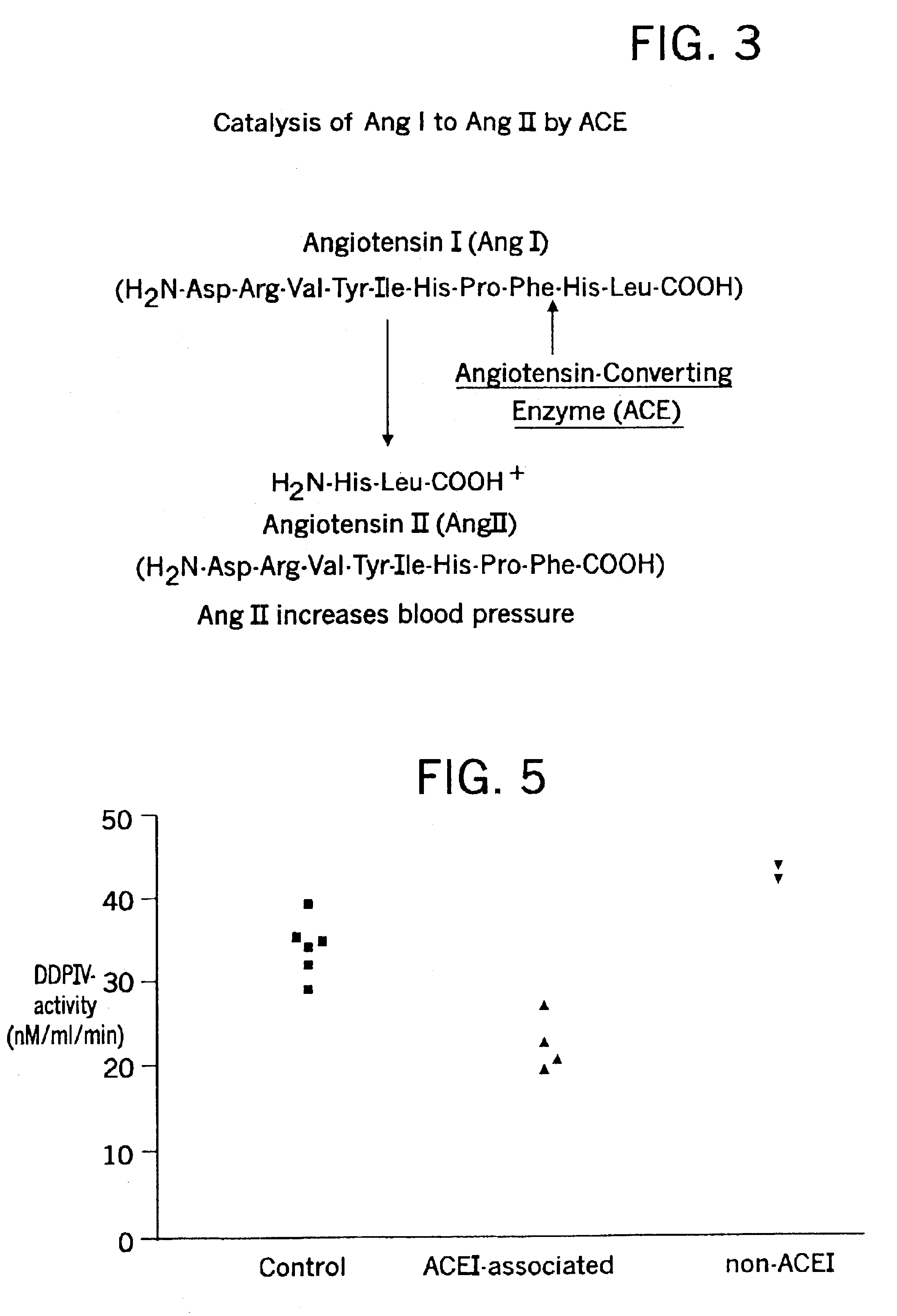Methods for identifying contraindications to angiotensin converting enzyme inhibitor and/or vasopeptidase inhibitor treatment
a technology of angiotensin converting enzyme and contraindications, which is applied in the field of methods for identifying contraindications to angiotensin converting enzyme inhibitor and/or vasopeptidase inhibitor treatment, can solve the problems of increasing the chances of a subject developing angioedema, inability to accurately predict which subjects are particularly susceptible to ace inhibitor associated angioedema, and inability to accurately predict which subjects. , to achieve the effect o
- Summary
- Abstract
- Description
- Claims
- Application Information
AI Technical Summary
Benefits of technology
Problems solved by technology
Method used
Image
Examples
example 2
ILLUSTRATIVE EXAMPLE 2
[0140]A 64-year-old African American man with dilated cardiomyopathy and a history of congestive heart failure presents to the emergency room with swelling of his lips and oropharynx. On examination he is noted to be stridorous and he is intubated to protect his airway. He is given intravenous corticosteroids and histamine H1 and H2 antagonists. Prior to admission he was taking the diuretic furosemide, the ACE inhibitor lisinopril, and the aldosterone receptor antagonist spironolactone. He has taken the ACE inhibitor for at least four years and has never had any previous episode of angioedema. Five days prior to admission he was started on the antibiotic ciprofloxacin for a urinary tract infection. It was not clear to the patient's physician whether his angioedema was related to his use of an ACE inhibitor. Given the proven benefit of ACE inhibitors as treatment in patients with left ventricular dysfunction, the physician desired to continue therapy, if possibl...
example 3
ILLUSTRATIVE EXAMPLE 3
[0145]A physician determines that a patient is in need of treatment with an ACE / vasopeptidase inhibitor. A blood sample is drawn from the patient and is processed to obtain a serum sample. The DPP IV and / or APP activity is determined for the individual. The patient is started on the inhibitor(s). The DPP IV and / or APP enzyme activity is checked periodically to determine the risk for angioedema and to determine if the risk is changing. The period between tests can be any period selected by the physician. In certain examples the period is about one week, in certain examples the period is about six months and in certain examples the period varies from test to test.
example 4
ILLUSTRATIVE EXAMPLE 4
[0146]Example 4 is the same as Example 3, except that the patient develops angioedema during the course of treatment with the inhibitor(s). Treatment with the inhibitor(s) is suspended until the angioedema is resolved and until the DPP IV and / or APP enzyme activity is found to be at a safe level(s) to resume treatment with the inhibitor(s).
LABORATORY EXAMPLES
[0147]The following Laboratory Examples have been included to illustrate preferred modes of the invention. Certain aspects of the following Laboratory Examples are described in terms of techniques and procedures found or contemplated by the present inventors to work well in the practice of the invention. These Laboratory Examples are exemplified through the use of standard laboratory practices of the inventors. In light of the present disclosure and the general level of skill in the art, those of skill will appreciate that the following Laboratory Examples are intended to be exemplary only and that numerous...
PUM
| Property | Measurement | Unit |
|---|---|---|
| pH | aaaaa | aaaaa |
| emission wavelengths | aaaaa | aaaaa |
| emission wavelengths | aaaaa | aaaaa |
Abstract
Description
Claims
Application Information
 Login to View More
Login to View More - R&D
- Intellectual Property
- Life Sciences
- Materials
- Tech Scout
- Unparalleled Data Quality
- Higher Quality Content
- 60% Fewer Hallucinations
Browse by: Latest US Patents, China's latest patents, Technical Efficacy Thesaurus, Application Domain, Technology Topic, Popular Technical Reports.
© 2025 PatSnap. All rights reserved.Legal|Privacy policy|Modern Slavery Act Transparency Statement|Sitemap|About US| Contact US: help@patsnap.com



